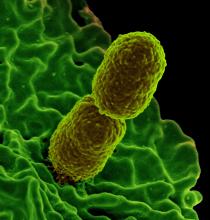
Scientists have discovered a new role for bile acids: they curb appetite by entering the brain. Their findings provide new insights into the signals and mechanisms by which satiety is controlled and may have implications for treating obesity.
Our brain is usually well protected from uncontrolled influx of molecules from the periphery thanks to the blood-brain barrier, a physical seal of cells lining the blood vessel walls. The hypothalamus, however, is a notable exception to this rule. Characterized by “leaky” blood vessels, this region, located at the base of the brain, is exposed to a variety of circulating bioactive molecules. This anatomical feature also determines its function as a rheostat involved in the coordination of energy sensing and feeding behavior.
Several hormone...
Read More









Recent Comments